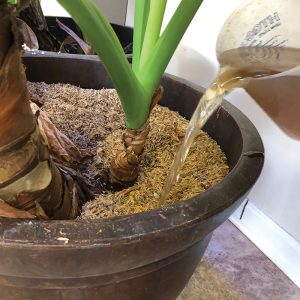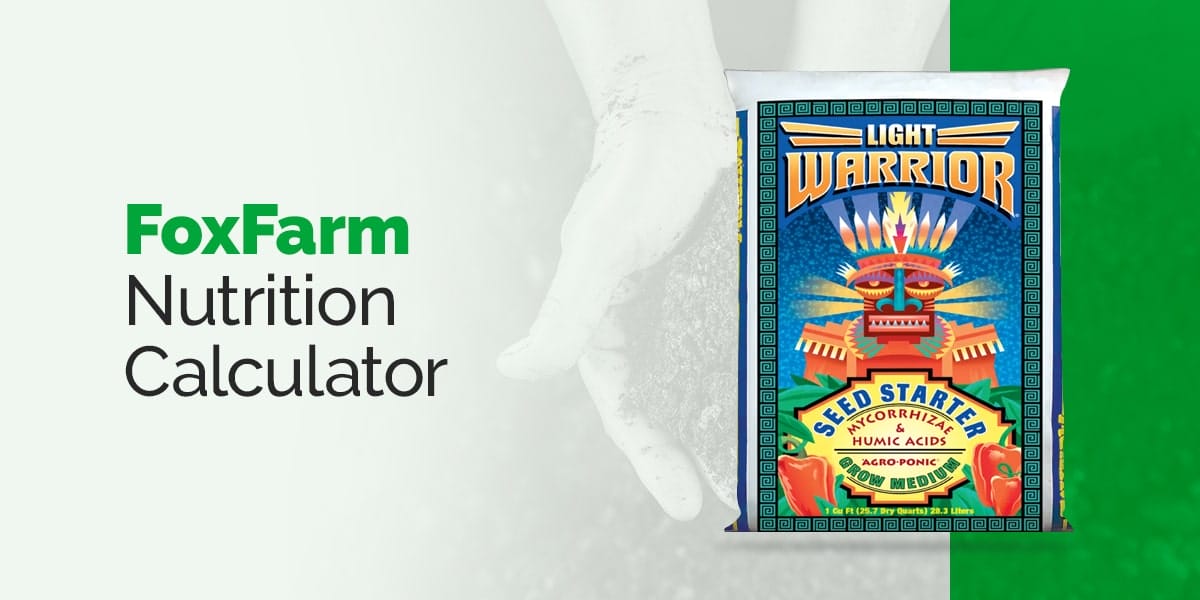When you think of bacteria and fungi in your garden, the first things you probably think of are diseases and problems like root rot, powdery mildew and others. After all, there are a thousand articles and forums dedicated to clearing your garden of microbial pests and the problems they cause. But there are many types of bacteria and fungi that are actually beneficial for plants and crucial maximizing yields. In this segment we’ll cover the basics of beneficial microbes, the roles of different types, and how to use them properly. Plus, take advantage of our featured coupon code for savings on all the small things that will help you get the most out of your garden!
What Are Beneficial Microbes?
No one is an island unto themselves. This is the ultimate truth in nature, all living things form relationships with other things. This is exemplified in the area around plant roots called the rhizosphere. The rhizosphere is a tiny ecosystem bustling with life around the roots of plants. There are many bacteria, fungi and other microscopic organisms that live on and around plant roots in the soil. The microbial life that supports your plant’s growth are call “beneficial microbes” because, well, they are microbial organisms that benefit your plants. Out in nature this mutualistic relationship exists in abundance, but in our little indoor gardens, it’s easy to create a sterile environment where these beneficial organisms are lacking. So, we need to inoculate our grow mediums with beneficial organisms and care for them. Think of them as tiny little microscopic pets; out in the wild, they can find their own food and shelter, but when they live under your roof they’re your responsibility. If you take good care of them, they’ll stick around for a long time and contribute a lot to the growth of your plants.
Beneficial Soil Microbiology
Why Are They Important?
So, what do these beneficial microbes actually do? It depends on the type of microbe, but the beneficial microbes you will be adding are going to help your plants take up nutrients, either directly or by changing the nutrients to make them more available to your plants. Some will help stabilize the pH and others will help fight off bad microbes that will harm your plant. Some people swear that certain beneficial microbes can change the taste of plants. All of this means that beneficial microbes will allow your plants to grow bigger, faster, and be healthier with almost no effort on your part outside of just maintaining your soil environment.
Nutrient Uptake – The biggest and most obvious benefit of these organisms is that they directly contribute to your plant’s nutrient uptake. You may remember our articles on plant nutrient deficiencies, super soil, and especially indoor garden water quality; if you do, you know where this going. One of the biggest problems growers run into is nutrient lockout. Check out those articles to learn more, but a quick-and-dirty recap is this: nutrient lockout is commonly caused by improper pH which will cause nutrients to form bonds with one another, making them too “heavy” for plants to take up or too “complex” for plants to break down and use. Beneficial microbes can metabolize nutrients your plant cannot and will secrete them in forms that plants can use, which will solve both of those problems and let your plants have access to the nutrients that are already in the soil.
Root Zone Defense – Aside from your nutrients, another aspect of your plant’s health is the health of the soil it’s planted in. Pests and harmful bacteria can compromise your plant’s rhizosphere without showing signs until the plant is in severe stress and the problem is much harder to fix. If you supplement your soil with beneficial microbes you will create a microbe-rich environment and the good microbes can outcompete or eat the bad ones. Some of these microbes even feed directly on parasites and harmful bacteria. Beneficial bacteria and fungi essentially give your plant the ability to use or recycle everything into easy food while protecting the root zone, meaning your plants will always have exactly what they need and they’ll be better protected from disease!
Types of Beneficial Microbes
Beneficial Mycorrhizae for Hydroponics
Benefical Fungus –Beneficial fungus, often called mycorrhizae, have been shown to increase growth rates in plants. These fungi also protect roots from soil toxins, diseases, and insects. The fact is, most plants will form a symbiotic mutualistic relationship with fungi in nature. The fungi are better at getting nutrients and water from the soil with their small root-like structures called hyphae. The plant due to photosynthesis can provide the fungi with sugar/food. Realize that not every plant will benefit or work with every fungus. When you buy a product with beneficial fungi, there will often be many types of fungi, and the idea is the ones that work well with your plants will survive and help your plants. Many companies’ market products for specific plant species – make sure they did their due diligence and did scientific tests. You can always do tests of your own, by applying beneficial organisms to some of your plants and not others and then comparing the two groups. If you don’t see a difference try another product. If you do see a benefit, apply the beneficial organisms to all. You can also try to add more or less beneficial organisms to plant groups to find the optimal amount your plants can use. Some types of beneficial fungi you should look for in products would include; Rhizopogon, Glomus, Trichoderma, Koningii, and Harziantum.
Beneficial Soil Bacteria
Beneficial Bacteria –There are many types of beneficial bacteria. These microbes can provide needed chemical changes to your grow medium and help to fight off diseases. Some types of bacteria are very useful in providing nitrogen to plants. Bacteria will also help your plants take in and use nutrients because they secrete enzymes that help ‘digest’ or change the nutrients in the soil to forms the plants can easily use. As with fungi, not every bacteria will benefit every plant so test the products on some of your plants to see if there is a difference. Two common groups of bacteria to look for in products are Bacillus and Actinomycetes
Beneficial Bacteria also provide one of the only means of fighting off insects organically. For instance, a bacteria called Bacillus thurengensis produces an enzyme that is an enzyme and kills insect pests in your garden. Applying this bacterium to your garden will kill all insects that come in contact with it.
Managing Your Microbes
Soil –The first thing you want to do is inoculate (introduce) the soil with the beneficial organism. You can see a list of specific products that we recommend to inoculate your growing medium with below. As always, follow the directions on how to prepare the beneficial organisms with the correct amount of water. If you are growing in a soil or soil-like medium such as coco coir, be sure to water it thoroughly so that all the material in the container is saturated. If any water comes out of the bottom, be sure to remove it. Plants should never be kept in standing water.

So, how do you care for these microbes once they’re in the soil? All you need to do is keep your soil environment moist and maintain the right temperature, which you will be doing for your plants anyway. You also want to ensure that the microbes are being fed. Your plant will provide the beneficial organisms with food but by supplying them with additional carbohydrates in the form of things like kelp or molasses you will get the most from your beneficial organisms.
Water Supply –There are other factors involved in the survival of your microbes – just like you shouldn’t feed chocolate to your dog, you don’t want to feed harmful chemicals to your microbes. Specifically, if you’re using a chemical like hydrogen peroxide in your garden to kill pests or harmful bacteria, you’ll kill the beneficial stuff too. If you use fungicides to get rid of a bad fungus, it will kill the beneficial ones too. Many growers go organic when using beneficial organisms, some because of the environmental ethics but also because using some chemical fertilizers could also harm your beneficial microbes. Similarly, tap water in most places is supplied by a municipal water plant, meaning the water is heavily treated with chlorine, or worse, chloramines. This kind of water will harm your soil biology unless you purify it. A simple reverse osmosis system which can be installed on any faucet in your house will clean all water coming out of that tap, eliminating the chemicals that would otherwise kill off the beneficial microbes in your soil environment. This is the safest and most versatile type of water for your garden, whether you grow in soil, coco, a blend, or even a hydroponic system!
Pure 100 Reverse Osmosis Filter
Hydroponics –We’ve talked a lot about using beneficial microbes in soil, but it’s just as easy and worthwhile to use them in hydroponics. Further, it’s almost even easier – microbes in hydroponic systems can generally be added at a fraction of the soil rate and to greater effect. The only catch is that some microbes can only survive on the roots or in the medium so adding more than needed will leave a lot of them helplessly floating unused in the solution. These microbes will decay (since they aren’t being supported by the root system), which can have unwanted effects. However, there’s a super easy solution to that – add smaller amounts of microbes or just add the microbes to your system a couple days before you’re planning to replace the water in your reservoir. That way, any microbes that didn’t attach to your root zone will just be flushed out and discarded, leaving only the ones that are attached to your roots.
Beneficial Microbe Amendments
There are many different products or amendments available that will help you add beneficial microbes to your garden. As we discussed above, the specific product you may want to use will depend on the specific plants you are growing, and you may also want to do some testing to see what works best for you. Amendments often come in the form of bacteria-specific formulas like Mammoth P or Advanced Nutrients Voodoo Juice or fungi-specific products like Piranha from AN. There are also products that offer a variety of both types of microbes like FoxFarm Microbe Brew, Roots Organics Oregonism XL, and Great White from Plant Success.
Pro Tip: Use carbohydrate or sweetener amendments like Bud Candy from Advanced Nutrients or FloraNectar by GH in conjunction with beneficial microbes to help to feed your beneficial microbes and further enhance yields and flavors!
Compost Teas – One of the most popular of adding beneficial microbes by far is the use of ‘compost teas’. A compost tea is essentially a concentrated dose of all the microbes that are found in a compost heap. You can make your own tea by mixing various compounds like kelp, humic acid, and fish protein with natural sources of beneficial microbes. An even easier way to make it is with Stump Tea, a unique ready-made compost tea mix that incorporates a great variety of beneficial bacteria along with kelp and molasses. Whether you’re using your own ingredients or a premixed product, you will want to ‘brew’ your compost tea by soaking or mixing your ingredients in water for at least a day before using it. Allowing a substance to soak in water and then using the water to add microbes is called a passive compost tea. If you were to pump air into the solution that is called an aerated compost tea. The idea is that by pumping air (oxygen) into the water you will encourage microbes to reproduce and your will get more of them. Check out our previous Talking Shop article compost tea!
To sum it up, beneficial microbes can make a big difference in what you get from your garden by assisting your plants with nutrient uptake and by helping them fend off diseases. You can’t go wrong by using beneficial microorganisms in your indoor garden, whether you’re an organic soil or a hydroponics grower. In a way, you could say it’s like adding millions of little helpers to your garden, and growing is always better when you’re not doing it alone!
Beneficial Biology Products For Indoor And Outdoor Gardening____________________Tips or tricks of your own to share? Join the conversation, and comment below! Don’t forget to check out this week’s coupon code and sale information as well! From all of us here, good luck, stay safe, and Happy Growing!
THIS WEEK’S COUPON CODE: MICROBES418
Enter the promo code at checkout for a 10% discount on any beneficial microbe product featured below. Get 25% off Advanced Nutrients Products with code “ADVANCED25”. Visit your local HTG Supply and simply mention this article to get the deal in-store as well! Thanks again for tuning into Talking Shop with HTG Supply! Offer valid through HTGSupply.com and in-store 04/06/18-04/20/18. Cannot be combined with other offers. Follow us on social media for all the Sales, Events and Customer Appreciation Days. In addition, learn more about indoor growing and get all kinds of tips, tricks and techniques!
By: HTG Supply on 04/06/2018


